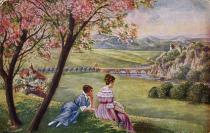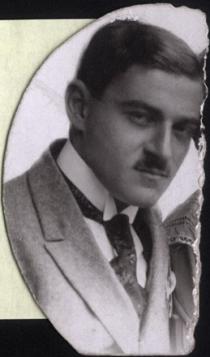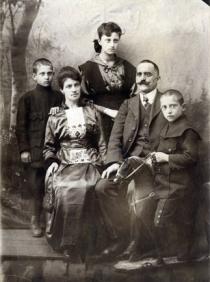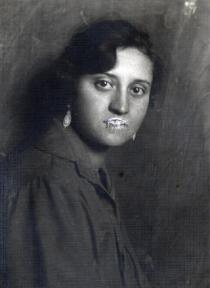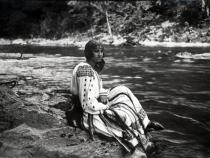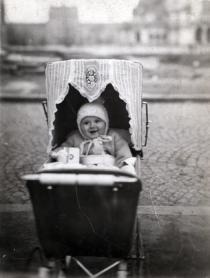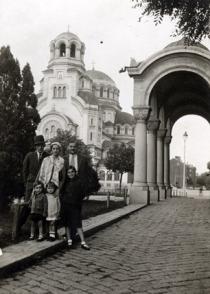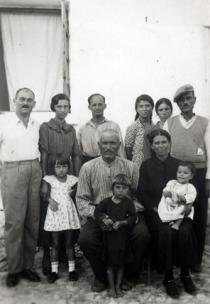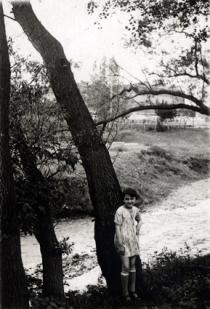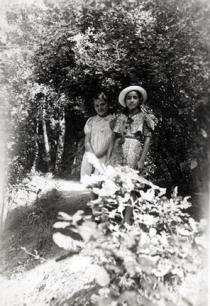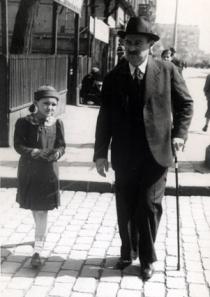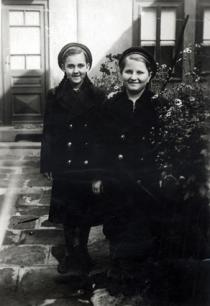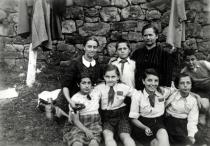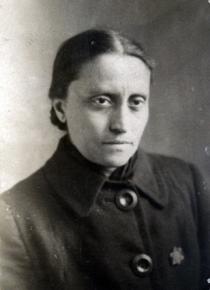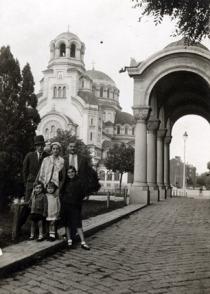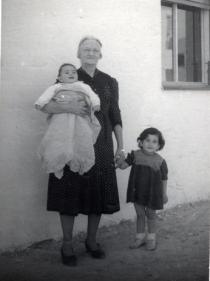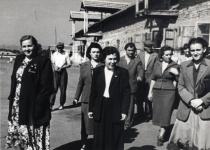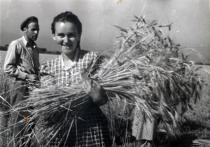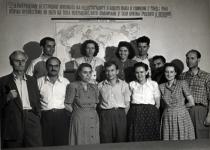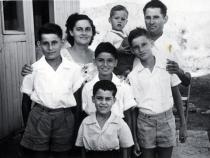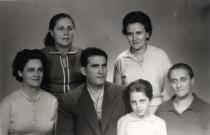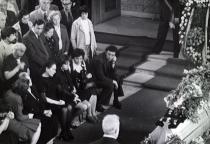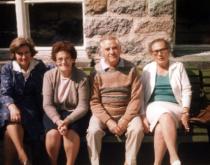Reyna Lidgi and her mother Elvira Lidgi during the internment in Vidin
My mother and I in the house in Vidin in which we lived during the internment. The photo was taken in 1943. There is nothing written on the back, only a red-ink stamp of the photo shop - Photo B-a (the rest is illegible). The house in which we were put up belonged to a cousin of my father's, who was a pharmacist in Vidin. His name is Izidor Lidgi. That was one of the most impressive houses in Vidin, there was even a piano in it. The photo was taken by Izidor. My father, whose hobby was photography, had taught Izidor to take photos.
My mother and I lived in one room on the floor below, Izidor Lidgi, his wife Liza and their children Marcel and Sofka - in the room next door. His mother, granny Sophie, lived in a separate room. On the floor above lived Buko and Lika Pinkas and their son Bentsion, in the other room - the Zilbermans. In the third room was a friend of the family - Liutinger. All the other Jews lived in much worse conditions in the building of the school in the old part of the town called 'Kaleto'. There the conditions were tough and they were foddered.
There was a curfew and we were allowed to go out only between ten and twelve o'clock in the morning. The rest of the day we used to spend inside. My mother, in her attempt to make up for the food we were given, began cleaning the floor below and the toilet outside regularly. Getting supplies was a major problem. Marko Kohenov sent us parcels from the town of Kula, where he lived because he loved mum very much, as a wife of his favorite cousin, Buko Lidgi. My mother and I ate together with granny Sophie and Izidor Lidgi's family. Granny Sophie would sometimes give us a 100 leva note so that we could have some money.
The time was passing slowly although we talked to each other in the house. Through Bentsion I came into contact with the progressive [leftist] youth - the members of RMS [The Union of Young Workers (UYW)]. We had meetings with them, took off the badges and sneaked through the gardens in order to meet other Jews from 'Kaleto'. In spite of the hard life, I didn't have a clear idea of what was actually going on. We didn't know about the concentration camps in Europe but there was something in the air… There were rumors that we were going to be sent to Poland, but nobody knew what would happen afterwards. The word Poland was a threatening word…

